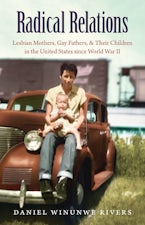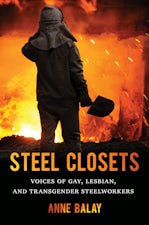Welcome to Fairyland
Queer Miami before 1940
By Julio Capó Jr.
400 pp., 6.125 x 9.25, 26 halftones, 2 maps, 1 table, notes, bibl., index
-
Paperback ISBN: 978-1-4696-3520-0
Published: November 2017 -
E-book EPUB ISBN: 978-1-4696-3521-7
Published: October 2017 -
E-book PDF ISBN: 979-8-8908-5312-7
Published: October 2017 -
Hardcover ISBN: 978-1-4696-3519-4
Published: November 2017
Buy this Book
- Paperback $39.95
- Hardcover $99.00
- E-Book $19.99
For Professors:
Free E-Exam Copies
Awards & distinctions
2018 Rembert Patrick Award, Florida Historical Society
2018 Harry T. and Harriette V. Moore Award, Florida Historical Society
2018 Stetson Kennedy Award, Florida Historical Society
Bronze Medal, 2017 Florida Book Awards, Florida Nonfiction
Finalist, Lambda Literary Award, LGBTQ Studies
2018 Charles S. Sydnor Award, Southern Historical Association
Drawing from a multilingual archive, Capó unearths the forgotten history of "fairyland," a marketing term crafted by boosters that held multiple meanings for different groups of people. In viewing Miami as a contested colonial space, he turns our attention to migrants and immigrants, tourism, and trade to and from the Caribbean--particularly the Bahamas, Cuba, and Haiti--to expand the geographic and methodological parameters of urban and queer history. Recovering the world of Miami’s old saloons, brothels, immigration checkpoints, borders, nightclubs, bars, and cruising sites, Capó makes clear how critical gender and sexual transgression is to understanding the city and the broader region in all its fullness.
About the Author
Julio Capó Jr. is associate professor of history at Florida International University.
For more information about Julio Capó Jr., visit
the
Author
Page.
Reviews
“For any history buff, Capó’s book is truly a gem that sheds a lot of light on an era in [Florida] that gets little notoriety outside of the gay media circuit.”—South Florida Gay News
“Grapples with important questions such as under what historical circumstances norms get shaped, bifurcated, and become hegemonic. Capó Jr.’s work is an extraordinary contribution that offers innovative ways for understanding the role of gender and sexuality in shaping the social, cultural, and urban landscape of Miami.”—Black Perspectives
“Welcome to Fairyland eschews the earlier scholarly impulse in lesbian and gay studies to produce histories of same-sex desire and community-building without grappling with how gender, race, and class inequities structured differential access to spaces of leisure and transgression where those formations might have emerged.”—Los Angeles Review of Books
“One of the most innovative and important recent works in LGBT history. Capó has uncovered astonishing finds that recover the remarkable past of a city that too many people believe has no history to speak of.”—Gay & Lesbian Review
“Demonstrates the centrality of queer and transnational analysis to understanding the 'instant city' of Miami and provides an important model for future scholarship in queer, urban, and southern histories.”—Journal of Southern History
“This engaging and densely researched book stretches the very idea of what queer history can be. . . . A wide-reaching and provocative volume that makes clear how the histories of sexuality and gender are interwoven with and informed by the histories of race, class, and empire.” —Canadian Journal of History



